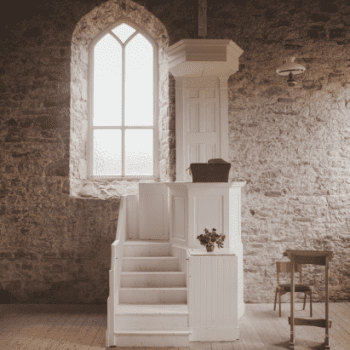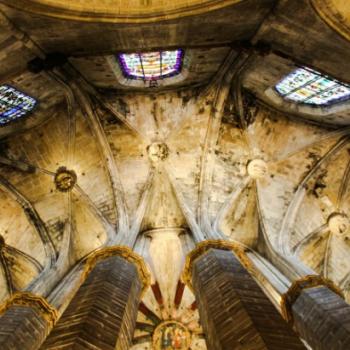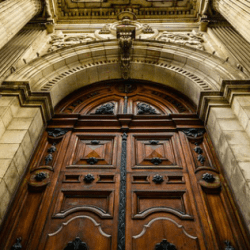As we near the official anniversary of the Reformation it is appropriate for us to reflect on the intent of the Reformers so that we can better understand what we’re celebrating. Such an endeavor necessarily takes up more space than a blog post can provide but I would like to briefly address Luther’s reform of the mass in relation to the Lord’s Supper.
Some of the most heinous practices in the medieval mass were associated with the Sacrament of the Altar. By the time Luther reformed the mass, the medieval church was prescribing, in some cases, that all Christians partake of the Lord’s Supper at least once a year because it was so rarely attended. This was largely due to the fact that the mass became more remote as altars were pushed back against the eastern wall of the building, often with a wall separating the priest from the people, the service remained in Latin, and the common cup (the wine in the Lord’s Supper) was denied to the laity. For many Christians, the mass became a time of private devotion as they peered through the dividers standing between them and the priest. They did not participate in the service of the mass, perhaps with the exception of singing the Kyrie and praying the rosary while they watched the priest. These abuses of the mass reflected deep theological error and ignorance.
Luther’s great “rediscovery” was primarily manifested in his understanding of the sacraments. For Luther, salvation was won, once and for all, by Christ’s atoning sacrifice on the cross. The forgiveness of sins and communion with God is received by grace through faith. Luther’s understanding of the cross then changed how he understood the sacraments (particularly the sacraments of Holy Baptism and the Lord’s Supper). He no longer saw the Sacrament of the Altar as man’s work done to daily satisfy an angry God but rather God’s work (Gottesdienst), done once and for all on the cross, now given in the Body and Blood of the Christ at the altar. By reforming the mass Luther sought to turn the focus of the mass back to understanding it as Gottesdienst. This would require both a reform in the practices of the mass as well as educating the laity as to its purpose.
With this in mind, Luther’s reforms took on a pedagogical nature. He advocated for moving the altar closer to the laity, chanting the words of institution out loud, in the vernacular, so that all could hear and understand what was being done. By doing this, Luther highlighted the fact that the priest is operating as a minister of Christ and that it is in fact the Word, Christ, who adds his very own body and blood to the bread and wine for the forgiveness of sins. He also called for the preaching of God’s Word at all services so that the people could be taught the Gospel and further understand the nature of their worship as receptive.
To be sure, this is only a cursory look at Luther’s reform of the mass; however, the important take away is the reasoning why he reformed it. Luther had no intention of totally abolishing the mass, as was the case with later reformers, but rather he wanted to restore it to its original purpose of receiving God’s gifts. As we observe the anniversary of the Reformation this year, let’s not get caught up in the language of salvation by grace through faith alone as an abstract thought divorced from the means by which we receive that grace. Instead, let’s stay true to the legacy of the Reformation and faithfully receive God’s gifts with thanksgiving and praise.

Daniel Broaddus majored in Government (Political Theory track) at Patrick Henry College where he graduated in 2012. He is now in the Master of Divinity program at Concordia Theological Seminary, Fort Wayne.












